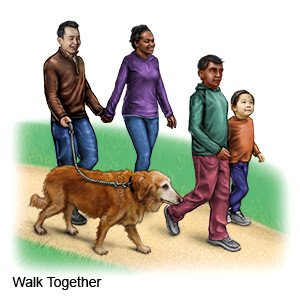Primary Immune Deficiency Disorder
Medically reviewed by Drugs.com. Last updated on Aug 4, 2025.
AMBULATORY CARE:
A primary immune deficiency disorder (PIDD)
means your immune system did not develop correctly, or does not work correctly. This increases your risk for infections and certain cancers. Infections you had before, such as tuberculosis, may also become active again. Your immune system may also attack healthy cells instead of harmful cells.
Seek care immediately if:
- You have sudden or severe trouble breathing.
Contact your healthcare provider if:
- You have a fever that does not come down with medicine, such as acetaminophen.
- You have new or worsening symptoms.
- You have questions or concerns about your condition or care.
Signs and symptoms of a PIDD:
- Infections that happen often, especially in your airway, such as sinus infections or pneumonia
- More infections than other people around you
- Infections that cause more severe illness or last longer than in other people
- Bacterial infections that do not get better with antibiotics
- Wounds that do not heal well
Treatment
may include controlling infections, helping the immune system work better, or treating the cause of the PIDD. You may also need to have an autoimmune disease or cancer treated. You may need any of the following, depending on the kind of PIDD you have:
- Antibiotics may be given to prevent or fight a bacterial infection. You may need strong antibiotics given in the hospital if your body does not respond to antibiotics you take at home. You may also need to take antibiotics for a long period of time to prevent infections that cause permanent lung or ear damage.
- Medicines may be given to help strengthen your immune system.
- A bone marrow transplant may be used to increase the number of healthy white blood cells.
Manage a PIDD:
The following are ways you can help prevent infection and protect or build your immune system:
- Wash your hands often. This can help prevent infection and the spread of germs. Use soap and warm water. Wash your hands after you change a child's diaper and before you prepare or eat food. Use an alcohol-based hand rub if soap and water are not available. Carry gel with you when you leave the house. Dry your hands before you use hand rub. Rub your hands together until all of the liquid has dried.

- Avoid crowds during flu season. Flu season is from late October to the middle of March. Do not have close contact with someone who is sick. Stay 3 to 6 feet away from people when you are in public. Ask friends and family to visit only when they are not sick.
- Eat a variety of healthy foods. Healthy foods help your immune system work better. Healthy foods include fruits, vegetables, whole-grain breads, fish, lean meats, low-fat dairy products, and cooked beans.

- Exercise as directed. Exercise can help keep your lungs clear. This will help decrease your risk for a lung infection. Do not exercise outdoors in cold weather or in an area that has pollution.

- Protect your mouth from germs that lead to infection. Brush your teeth at least 2 times per day. See your dentist at least every 6 months.
- Do not smoke. Nicotine and other chemicals in cigarettes and cigars can cause lung damage. Ask your healthcare provider for information if you currently smoke and need help to quit. E-cigarettes or smokeless tobacco still contain nicotine. Talk to your healthcare provider before you use these products.
- Ask if you need to be screened for cancer. A PIDD can increase your risk for certain cancers. Regular screening can help find cancer early.
- Ask about vaccines you may need. Your provider may recommend these and other vaccines:
- Ask your healthcare provider about the flu and pneumonia vaccines. All adults should get the flu (influenza) vaccine as soon as recommended each year, usually in September or October. The pneumonia vaccine is recommended for all adults aged 50 or older to prevent pneumococcal disease, such as pneumonia. Adults aged 19 to 49 years who are at high risk for pneumococcal disease should also receive the vaccine. You may need 1 dose or 2. The number depends on the vaccine used and your risk factors.
- COVID-19 vaccines are given to adults as a shot. At least 1 dose of an updated vaccine is recommended for all adults. COVID-19 vaccines are updated throughout the year. Adults 65 or older need a second dose of updated vaccine at least 4 months after the first dose. Your healthcare provider can help you schedule all needed doses as updated vaccines become available.
Follow up with your doctor as directed:
Write down your questions so you remember to ask them during your visits.
© Copyright Merative 2025 Information is for End User's use only and may not be sold, redistributed or otherwise used for commercial purposes.
The above information is an educational aid only. It is not intended as medical advice for individual conditions or treatments. Talk to your doctor, nurse or pharmacist before following any medical regimen to see if it is safe and effective for you.
Learn more about Primary Immune Deficiency Disorder
Treatment options
Care guides
Further information
Always consult your healthcare provider to ensure the information displayed on this page applies to your personal circumstances.
